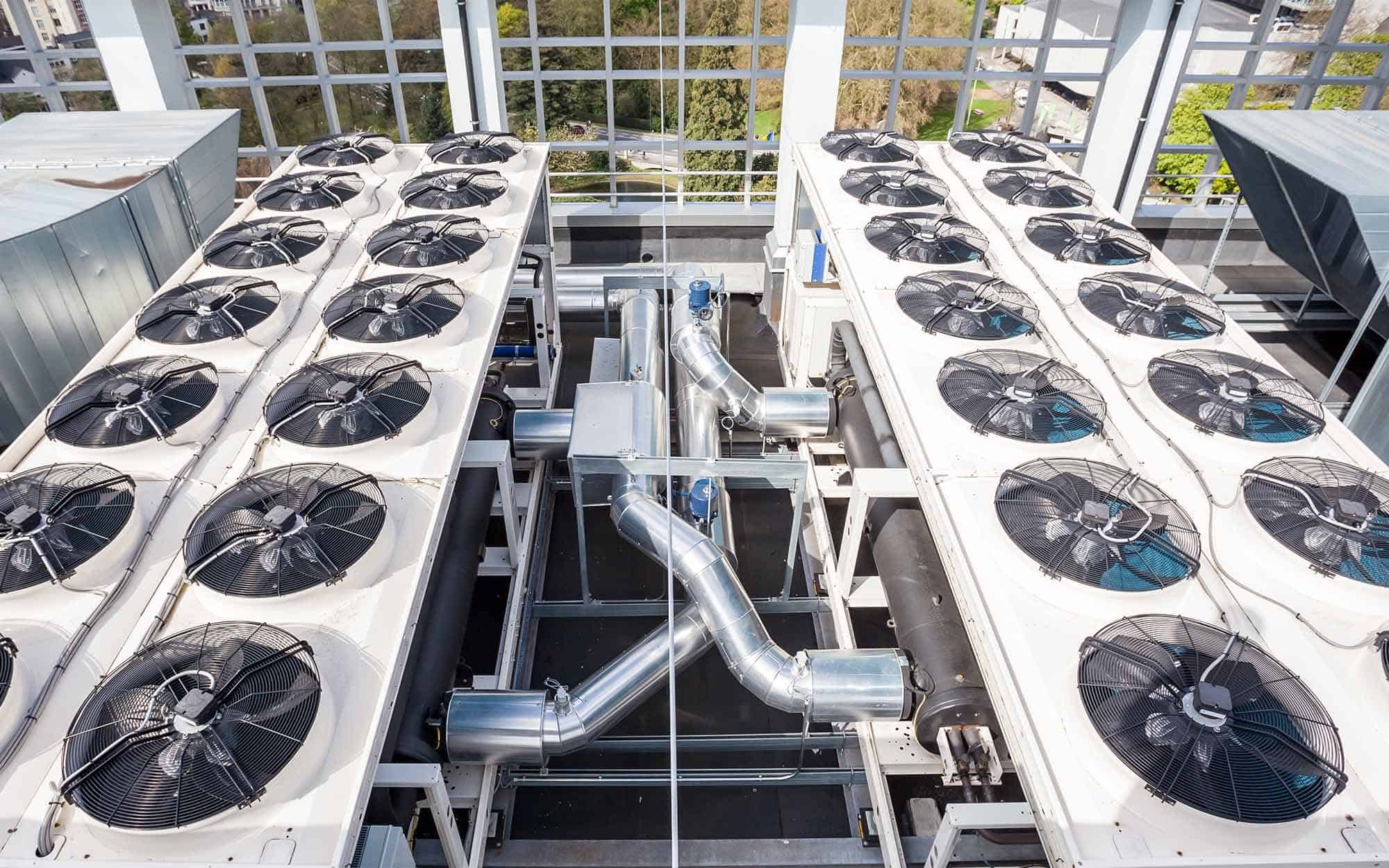
Understanding the difference between commercial HVAC vs. residential helps you take better care of your commercial HVAC system. Keep reading to learn more about these two HVAC systems.
Are you looking for high-quality services for your commercial HVAC system?
Understanding Residential HVAC Systems
There are a few key differences between commercial HVAC vs. residential:
React’s Impact as an NYC Accelerator Service Provider
Now that we’re officially an NYC Accelerator service provider, we can share their green solutions and practices with our clients to improve their eco-friendliness as well as our own.
Our techniques support higher energy efficiency and carbon reduction for our:
Size
Residential HVAC units are much smaller than commercial units. A single-family home requires only one unit and one thermostat. Less energy is needed to operate a residential HVAC unit, so it doesn’t need to be as large as commercial HVAC systems.
Location
Residential HVAC units are typically located in the backyard or against the side of your house. These locations give technicians easy access to your unit and keep it out of sight, so it doesn’t affect the overall curb appeal of your home.
Installation and Add-Ons
Unlike commercial HVAC, residential units are standalone. You can’t modify or add on parts, since these units are smaller than commercial HVAC systems.
Maintenance
Residential units require minimal maintenance because of their small size and simple function. Most homeowners can complete basic regular maintenance on their units, like changing air filters and cleaning parts, since they don’t require as much as HVAC for large buildings.
How Does Air Conditioning Work in Large Buildings?
Commercial cooling systems operate differently than residential because they:
- Are much larger
- Require maintenance from a professional HVAC technician
- Can be modified, upgraded, and expanded
- Are typically located on the roofs of commercial buildings
- Need more maintenance and repairs
- Include more than one thermostat
So, how do they work? There are many moving parts and differences between commercial HVAC vs. residential, so let’s break it down.
Commercial HVAC systems include interconnected systems that cool and heat the air for individual floors. Each floor typically has its own thermostat, since temperatures fluctuate throughout commercial buildings. These types of HVAC systems also include the following components:
- Air conditioning unit
- Rooftop unit
- Condenser
- Compressor
- Thermal expansion valves
- Air handler
- Evaporator coil and blower
- Terminal units
- Chiller
- Duct system
- Cooling towers
- Boiler
These parts work together to maintain the proper temperature and keep your building’s air free of debris, dust, and pathogens. A residential HVAC system doesn’t require the same amount of equipment, so even if you maintain or repair your HVAC at home, those skills don’t necessarily transfer over when working with a commercial unit.
Let’s learn more about maintaining a commercial HVAC system and why you should hire a professional to complete repairs and regular maintenance.
How To Maintain HVAC for Large Buildings
Maintaining HVAC systems for commercial buildings is a daunting task and should be handled by expert HVAC techs. With so many moving parts, completing your own repairs on your commercial HVAC system can be dangerous. To properly maintain HVAC for large buildings, do the following:
Inspect Your System Regularly
As a building owner, you should check your HVAC system routinely to make sure nothing is drastically wrong with your system. Monthly inspections are an excellent step in preventative maintenance. If anything alarming stands out to you during your inspection, contact an HVAC company to take a look and make any necessary repairs.
Remember the Differences Between Commercial HVAC vs. Residential
Remind yourself and others that commercial HVAC and residential are not the same and avoid DIY repairs for commercial HVAC systems. Completing repairs yourself could lead to more significant damage, which is more expensive in the long run.
Partner With a Trusted and Experienced HVAC Company
You need a commercial HVAC partner that understands your building’s unique needs and size. React Industries is the experienced and trustworthy HVAC company you deserve. With over 35 years of experience and our high-quality maintenance programs, we provide top-tier service for businesses of all sizes.
We understand the differences between commercial HVAC vs. residential and want to keep your building occupants safe. That’s why we provide many superior HVAC services, including:
- Emergency HVAC service
- Indoor air quality services
- Retrofitting
- Refrigerant phase out
- HVAC installation and replacement
- Condensing boiler and cooling tower solutions
Contact us today to enhance the safety and efficiency of your commercial HVAC system.